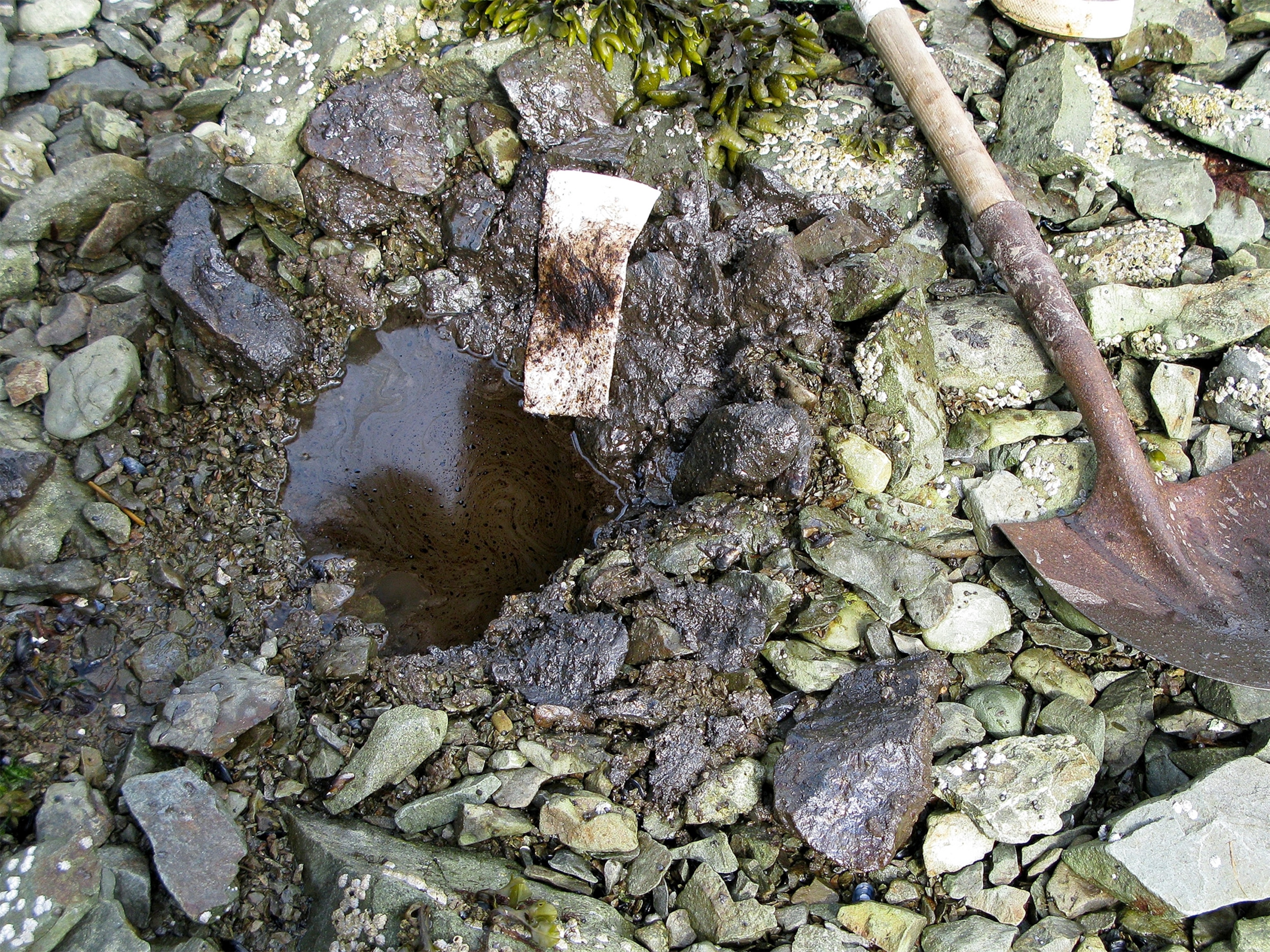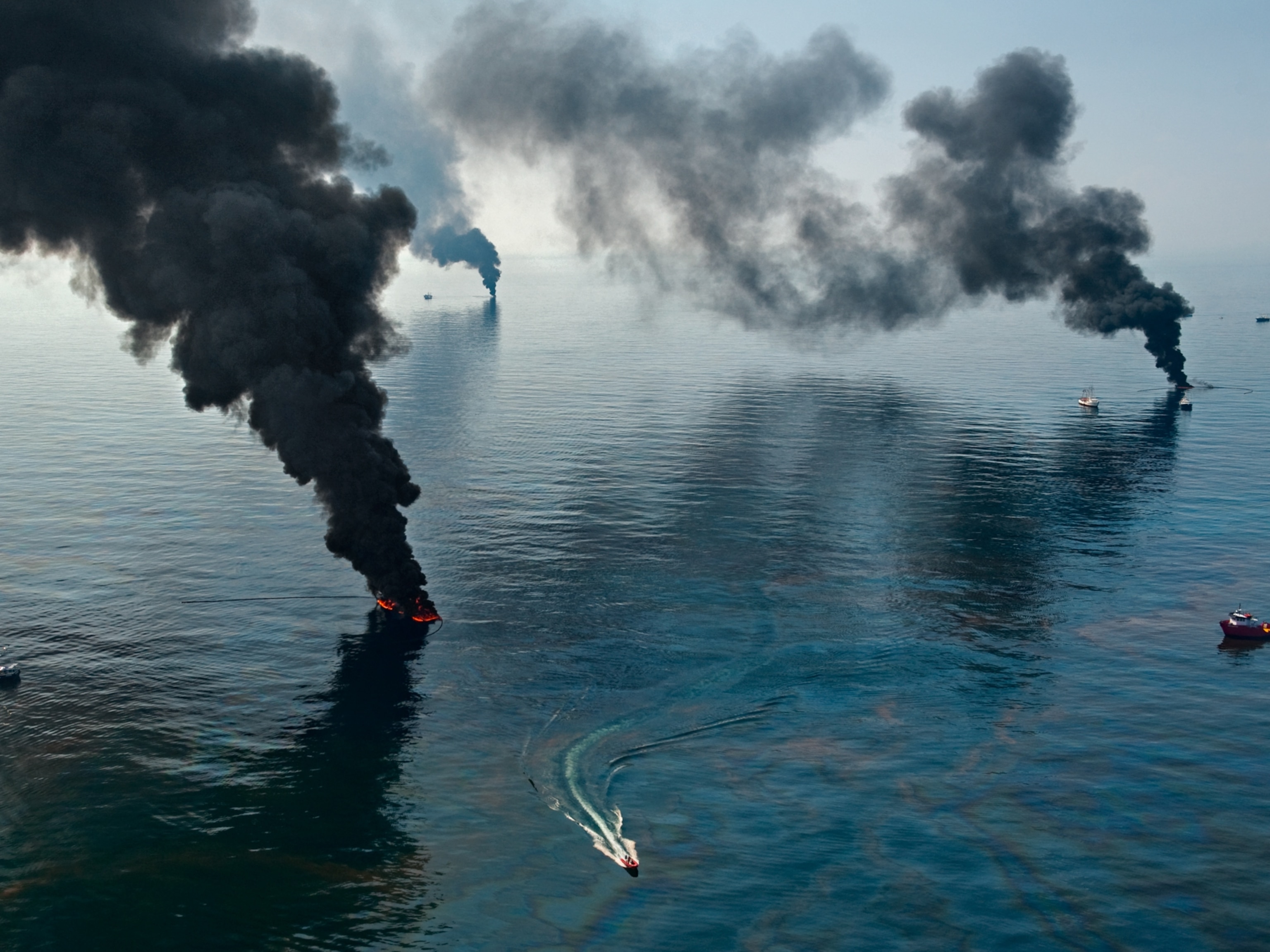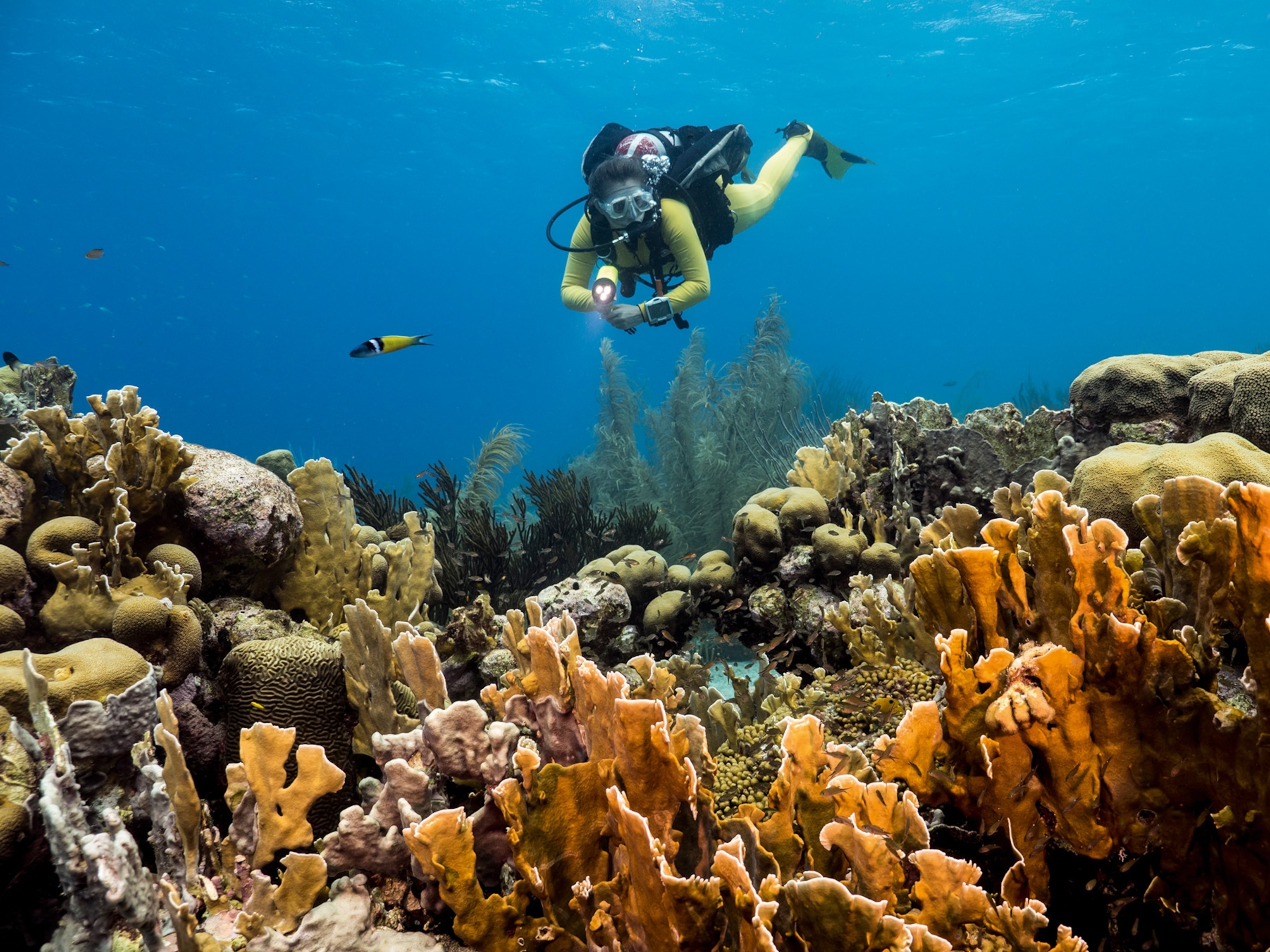
On 25th Exxon Valdez Anniversary, Oil Still Clings to Beaches
The effects of one of the worst environmental disasters in the U.S. still linger on boulder-strewn beaches in the Gulf of Alaska.
Twenty-five years after the Exxon Valdez oil spill set off one of the most devastating environmental disasters in U.S. history, scientists say that a surprising amount of oil still clings to boulder-strewn beaches in the Gulf of Alaska.
And that oil could stick around for decades to come.
Monday marks the 25th anniversary of the spill, when a tanker ran aground on Bligh Reef in Prince William Sound (map). The accident wiped out herring and salmon runs. And some of the affected wildlife, like sea otters and pink salmon, are still recovering.
The latest findings on lingering oil came last month, when scientists announced that spilled oil in the Gulf of Alaska still has most of the same chemical compounds as oil sampled 11 days after the accident. (See "Exxon Valdez Anniversary: 20 Years Later, Oil Remains.")
The scientists presented evidence of a lingering, foamy, mousse-like emulsion at a major ocean science conference in Hawaii.
The oil's presence in areas that were cleaned right after the spill points to a need to monitor certain environments long after the visible effects disappear, the researchers say.
It's Like Mayonnaise
There are two main reasons why there's still oil on some of the beaches of the Kenai Fjords and Katmai National Parks and Preserves in the Gulf of Alaska, explains Gail Irvine, a marine ecologist with the U.S. Geological Survey and lead researcher on the study.
When the oil first spilled from the tanker, it mixed with the seawater and formed an emulsion that turned it into a goopy compound, she says.
"When oil forms into the foam, the outside is weathering, but the inside isn't," Irvine explains. It's like mayonnaise left out on the counter. The surface will crust over, but the inside of the clump still looks like mayonnaise, she explains.
When that foamy oil met the boulders and cobbles of beaches in the Gulf of Alaska, it plopped down between and under the rocks, and it's still there.

Protected by Boulders
The boulders on these beaches don't move very much, says Christoph Aeppli, a marine environmental chemist at the Bigelow Laboratory for Ocean Sciences in East Boothbay, Maine. On their most exposed site, the boulders moved less than 3.3 feet (a meter) from 1994 to 2012.
"That stability is what has allowed the oil to persist," Irvine says, even after the beaches were steam-cleaned.
Researchers aren't sure how much oil remains ensconced under these boulders—that would require a different kind of study. "We think it's low levels," says Irvine. "Quite frankly, I didn't think [oil] would be there because it's been so long."
Nonetheless, the oil is there—and is leaking out. Irvine and colleagues collected and tested mussels near these boulder fields and found low levels of Exxon Valdez oil in their tissues.
Irvine says the levels are so low that it probably isn't a cause for concern for the animals. She says the main takeaway from the study is the fact that surprisingly fresh oil can linger in certain environments long after a spill has been cleaned up.
And that means that monitoring an environment after an oil spill isn't a matter of weeks or months but of years and even decades.
Follow Jane J. Lee on Twitter.





